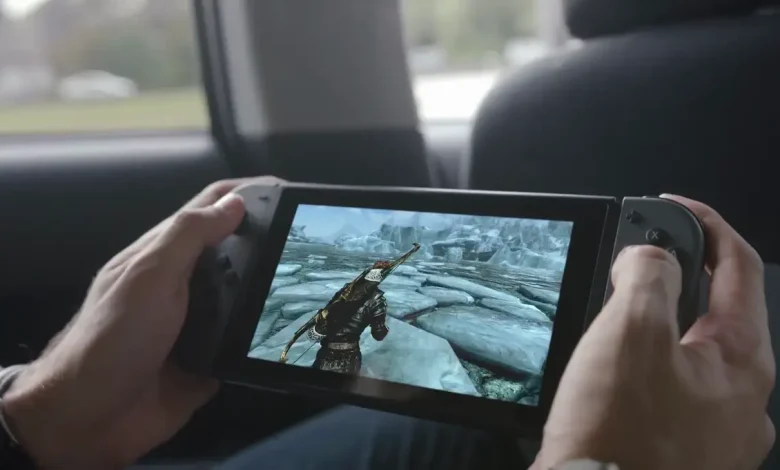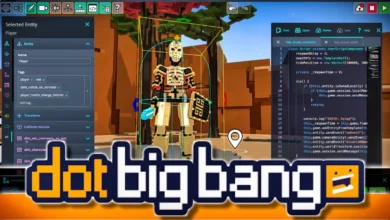
As we navigate multiple responsibilities and the constant stream of information, finding effective relaxation and cognitive enhancement methods is a growing priority. Many might be surprised that the solution could be as delightful and simple as engaging in casual online games. These easily accessible digital diversions are ideal for decompressing after a long day, challenging our minds in non-stressful ways, and occasionally connecting with others through an interactive experience.
Key Takeaways:
- Understanding the benefits of casual gaming for stress relief.
- How gaming can improve cognitive functions like memory and problem-solving.
- Exploring the balance between gaming as a hobby and gaming in moderation.
The Rise of Casual Gaming Among All Age Groups
The spectrum of casual gamers reflects all stages of life—from young kids just discovering the joys of play to older adults seeking cognitive stimulation. The beauty of casual online games lies in their universal appeal and simplicity, which eliminate intimidating barriers to entry. With no need for specialized equipment or in-depth gaming knowledge, these games are inviting to everyone. As technology advances, this gaming genre only expands, reaching more screens and hearts than ever, creating communities that share a common interest in relaxation and fun.
Casual Games as Stress Relievers
Casual gaming’s potential to relieve stress isn’t just about escaping reality. It’s about subconsciously channeling focus away from stressors and easing the mind into a meditative state of flow, where time seems to fall away along with our worries. As levels are completed and challenges met with success, feelings of accomplishment drown out the noise of stress. The simplicity and repetitive actions often involved in casual games help to craft a restful sanctuary for the mind.
The Psychological Perspective
Psychologists recognize the underpinnings of the human mind’s response to video games. Interacting with a virtual world provides immediate feedback and a sense of control that real life often lacks, yielding a gratifying space for achievement. The psychological benefits extend beyond mere enjoyment, suggesting that casual gaming environments are ideal for subtly forging a more serene mindset. A resource like Psychology Today delves into how these playful activities are correlated with positive mental health outcomes.
Enhancing Cognitive Function Through Play
Scientific studies have shown that casual gaming can be a form of cognitive conditioning. These games often disguise complex problem-solving within their intriguing storylines and vivid graphics. Casual gaming can lead to better multitasking skills, heightened attention to detail, and faster information processing—translating these virtual gains into real-world benefits. Just as muscles gain strength with physical exercise, the brain develops agility with mental challenges.
What Does Research Say?
Research emerging from neuroscience and cognitive psychology has provided a compelling narrative of the benefits of gaming on the brain. These studies posit that the technologies driving casual games can improve cognitive functions. Such gains are observed in executive functions, which orchestrate high-level thinking, problem-solving, and the ability to switch between tasks. Interested readers can refer to articles on platforms like Nature, which discuss the riveting connection between gaming and cognitive enhancement.
Finding a Healthy Gaming-Life Balance
While casual gaming bears numerous advantages, the key to unlocking these benefits lies in moderation. Establishing boundaries ensures that gaming remains a stimulating hobby, not a binding obsession. Practicing self-discipline with time management skills to restrict gaming to appropriate intervals can safeguard against potential negative impacts. Awareness of the content and narrative of the games chosen also dramatically contributes to ensuring that gaming is a positive force in one’s life.
Setting Boundaries
Crafting a schedule where gaming is a designated activity, like exercising or reading, encourages a structured approach to leisure. It is about carving out pockets of time for rejuvenation without compromising the fulfillment of daily duties and social obligations. Considering gaming’s place in the grander scheme of life’s activities is essential for a well-rounded, healthy lifestyle.
Gaming as a Social Activity
With the advent of internet-connected gaming and online communities, gaming has established itself as a vibrant social arena. Gamers create and maintain friendships through these platforms, engage in teamwork, and compete globally. The social elements of gaming come forth as players engage in dialogue, strategize collectively, and support each other, reinforcing the real-world applicability of these virtual interactions.
Building Social Skills
Gaming can indeed be anonymizing, but it also can be incredibly unifying, producing environments that encourage communication and understanding among players. As part of teams and communities, gamers develop skills directly transferable to everyday social situations. These virtual interactions can teach players about empathy, cooperation, and the diversity of perspectives—valuable lessons that can enhance their personal and professional lives.
Accessible Gaming for Everyone
Democratizing the joy of gaming, developers are increasingly focusing on creating accessible experiences for people from various backgrounds, including those with disabilities. These inclusivity endeavors ensure that anyone wishing to partake in gaming can do so with ease, comfort, and full enjoyment. We’ve crossed significant thresholds in creating games that adapt to various needs, from color-blind modes to one-hand controls; gaming is now truly for everyone.
Importance of Inclusive Design
Inclusive design not only expands the gaming community, it enriches it. By constructing games with everyone in mind, we ensure that the digital divide leaves no one behind. This approach requires a conscientious effort to acknowledge diversity and implement features that facilitate all-inclusive engagement. Such strides in accessible gaming aren’t just commendable and foundational to the industry’s future.
Future Trends in Casual Gaming
Casual gaming is riding a wave of constant innovation. As technology barrels forward, so do the experiences offered by casual games. The emerging trends include integrating augmented reality (AR) and virtual reality (VR) into casual gaming landscapes, thereby potentially deepening both the cognitive and emotional impacts of gaming. The prospect of virtual experiences that double as cognitive exercises or stress relief platforms is tantalizing for both developers and gamers alike.
The versatility and latent benefits of casual gaming create a potent blend that serves as both an oasis for relaxation and a crucible for mental improvement. In an age of endless stimuli and constant connectivity, casual gaming stands out as a delightful refuge, enhancing our cognitive capabilities and providing a playful yet meaningful reprieve from the rigor of daily life.





